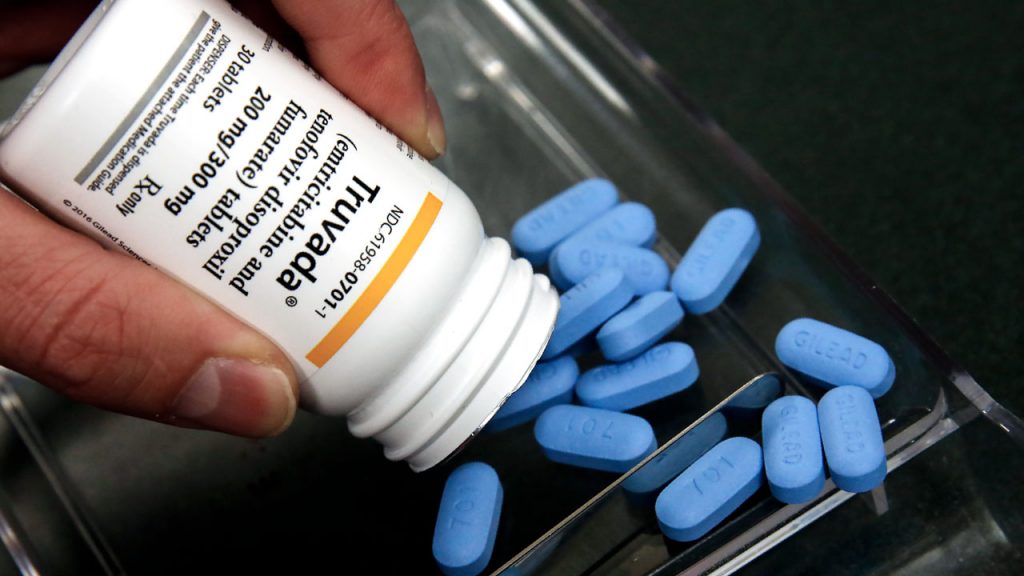The healthcare system in the U.S. shows time and time again that under capitalism, profit maximization trumps individual and societal well-being. We saw a recent example from Gilead Sciences manipulating patent laws to extend the life of one of their drugs and delay the release of another, potentially safer option. Gilead’s efforts serve as just one example of how under capitalism patent laws are used to maximize profits at the expense of public well-being.
Corporate Patent Strategy: Exhibit Gilead’s Tenofovir
In the world of HIV/AIDS treatment and prevention, many of the more recent treatments center on using a combination of different drugs that target different parts of HIV’s replication cycle. One such drug that is often one component of combination medications is tenofovir. Older versions of the drug are in a number of HIV treatments. One of these, which is a popular cornerstone of both HIV treatment and prevention, is Truvada, which is a combination of tenofovir and another drug called emtricitabine. While drugs like Truvada are generally effective, the older versions of tenofovir they contain were known to cause bone or kidney problems.
Gilead was researching alternate versions of tenofovir to incorporate in its HIV drugs, but in 2004 it decided to stop pursuing development and roll out a new version because, according to their explanation, it would be insufficiently different from the existing treatment. Despite the claim, internal memos indicate that the company believed the updated formula was less toxic, based on studies in laboratories and on animals at the time. But the company also realized that the new version of tenofovir posed a risk to its existing, patent-protected formulation.
Gilead executives devised a “patent extension strategy” to maintain high prices for their tenofovir-based drugs. By delaying the release of the updated version of tenofovir until shortly before the existing patents expired, it could extend the period during which at least one of its HIV treatments remained protected. This strategy was potentially worth billions of dollars, since it would allow Gilead to switch patients to the new drug just before cheaper generics hit the market. Others would continue to be exposed to the potentially more toxic version of the drug, which the company saw as a necessary consequence of maximizing profit.
Delayed Release and the Consequences
As a result of this strategy, Gilead introduced the updated version of tenofovir in 2015, nearly a decade after it could have become available if development had not been paused in 2004. This delayed release has become the subject of state and federal lawsuits, in which thousands of patients claim that Gilead unnecessarily exposed them to kidney and bone problems by keeping them on the older, less safe version of the drug.
One example of a combo drug container the new version of tenofovir is Descovy, which was brought to market in 2016 and is another very effective medication to both help treat and prevent HIV. To be clear, this new formulation of tenofovir is not without its risks — it can cause weight gain and elevated cholesterol. Almost all medications come with some sort of risk. But Gilead’s decision remains a red flag, since at the time of its decision, it did believe the newer version of tenofovir to be safer, yet it continued to delay its release to protect its bottom line.
Furthermore, even with the knowledge of the risks of the newer version of tenofovir, decisions by pharmaceutical companies like this continue to put patients at risk because they limit the options of treatments to use for healthcare workers, like myself, who prescribe medications to treat or prevent HIV. Because of decisions like this one, treatment options are more limited, making it more difficult to work together with patients to help them make the safest, most informed decision around their healthcare.
The Perverse Results of Pharmaceutical Patents
Gilead’s actions highlight the several perverse consequences of pharmaceutical companies’ use of patent law to their benefit. In the article “Perverse Results from Pharmaceutical Patents in the United States,” Warren Grimes, a professor of law at Southwestern Law School in Los Angeles, covers many of the ways the pharmaceutical industry uses and manipulates patent law to benefit not just benefit their bottom line, but manipulate the trajectory drug research itself is conducted. Grimes covers the process of “evergreening,” a practice of extending the life of patent protection by obtaining new patents on slightly modified versions of a drug. Companies also do whatever possible to manipulate healthcare workers into prescribing more profitable patented drugs, even when cheaper alternatives are available.
The profit-driven nature of the patent system incentivizes companies to focus on medications that require frequent administration, such as palliative drugs, rather than preventive or curative drugs. This misallocation of resources can hinder important advances in public health and limit access to potentially lifesaving treatments.
Similar dynamics recently played out as the Covid-19 pandemic unfolded around the globe. Companies developed vaccines and treatments and almost expected the public to congratulate them on their innovation. Instead of joining together to pool knowledge and resources to develop and roll out the best treatments and preventatives possible, companies competed with each other. Meanwhile, billionaires and pharmaceutical giants worked to stifle the rollback of intellectual property rights for Covid-19 treatment and vaccines at every turn. Bill Gates, for example, notoriously pushed for programs globally to uphold monopoly patent rights and rely on the charity of rich countries and pharmaceutical giants to provide vaccines to most of the world. Beyond helping steer the global health community away from patent free technology sharing to combat Covid, Gates also helped convince Oxford University, which originally planned to make an open-license vaccine, to instead sell the patent rights to a pharmaceutical company.
Bourgeois Legality Won’t Protect Us
Whether it’s HIV drugs or Covid-19 medications or vaccines during a global pandemic, the pharmaceutical industry and the billionaires who run it will always put profits over lives. Companies claim time and time again that they are “innovators,” but the reality of tenofovir shows us how under capitalism pharmaceutical companies stifle innovation to maintain profit. They weaponize legal frameworks whenever possible for their own benefit at the expense of public health.
As we see more attacks on basic human rights throughout the U.S. — whether the right to abortion or the right to gender-affirming health care — many try to rely on legal frameworks in order to protect the public. As patent law makes clear, such a strategy is totally ineffective. Legal frameworks in capitalist society are often made by the ruling class for the ruling class. We cannot rely on bourgeois legality to get us what we need.
Imagine if we lived in a society where the world’s greatest scientific minds could come together simply in an effort to improve individual and societal health, a society where pharmaceutical companies weren’t run by billionaires looking to maximize profit, but by researchers and the public collectively. Treatments that could benefit the public would never be delayed because of concerns over profitability. Safer drug formulations would never be delayed like that of the newer version of tenofovir. The scientific leaps that could be made by collectivizing knowledge are almost unfathomable.
This case only further underscores the need not to reform or adjust patent law, but to eliminate patents altogether. All drug companies and all research projects must be put under control of the whole working class to ensure that any new scientific or medical breakthrough goes toward benefiting everyone, not the bottom line of large companies or billionaires. Achieving this in terms of pharmaceuticals would mean nothing less than total appropriation of the means of producing drugs.
Unfortunately, under an economic system that prioritizes profit maximization, this can never be the case. Achieving these goals can’t happen by supporting capitalist political parties that are beholden to the same billionaires and large corporations that continually put profit maximization over public health. We will need to build a working-class party with a socialist platform that actually fights for public health and fights against a capitalist system harming us all.











